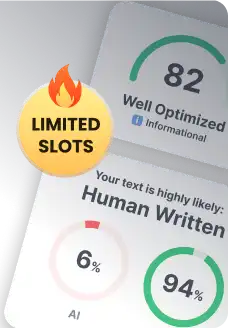Do you know that even a single sentence, if not properly attributed, can constitute plagiarism? Incremental plagiarism, the practice of incorporating small, unacknowledged portions of someone else’s work into your own, is a serious issue. While often unintentional, it can undermine your credibility and have far-reaching consequences. This guide will shed light on the nuances of incremental plagiarism, its implications, and how to avoid it, ensuring your work remains original and ethical
Key Takeaways
- Understand that incremental plagiarism involves subtly incorporating others’ work into your own without proper citation, often leading to unintentional ethical breaches.
- Familiarize yourself with examples of incremental plagiarism, such as using portions of a text or ideas from multiple sources without acknowledgment, to better recognize and avoid it.
- Recognize common forms like paraphrasing too closely or not citing small sections, which can help you identify and prevent these practices in your writing.
- Be aware of the serious consequences, including academic penalties and damage to your reputation, that can result from incremental plagiarism.
- Implement strategies to avoid incremental plagiarism by thoroughly understanding citation rules and using tools to check for unintentional copying.
- Practice ethical writing habits by tracking sources and ensuring proper attribution to maintain integrity in your work.
What is Incremental Plagiarism?
Incremental plagiarism occurs when small parts of someone else’s work are used without proper credit, such as lifting a sentence or two without acknowledgment. This subtle form of plagiarism often goes unnoticed and can happen unintentionally. You may believe you’re paraphrasing when you’re copying too closely.
This type of plagiarism is not limited to verbatim copying; it also includes self-plagiarism, which involves reusing your previous work without citation and paraphrasing plagiarism, where you modify a few words but retain the original structure and ideas. The defining characteristic is the absence of proper attribution for these borrowed elements.
How It Differs from Other Plagiarism Types
Incremental plagiarism is distinct due to its piecemeal nature. Unlike direct plagiarism, which copies entire sections verbatim, incremental plagiarism incorporates small, unattributed portions from a single source, making it less obvious yet equally serious.
It also differs from mosaic plagiarism, which mixes phrases from multiple sources with original content, resulting in a patchwork of unattributed material. Incremental plagiarism focuses on isolated instances rather than extensive compilations.
While global plagiarism involves submitting an entire work as one’s own, incremental plagiarism may seem less severe but can still damage credibility and trust if discovered. The challenge lies in its subtlety—how do you ensure that every borrowed idea is properly acknowledged?
Examples of Incremental Plagiarism
1. Political Speeches Instances
Incremental plagiarism often appears in politics, where speeches aim to inspire and persuade. A notable example occurred during the 2016 Republican National Convention when Melania Trump delivered a speech that closely mirrored Michelle Obama’s 2008 Democratic National Convention address. The nearly identical passages sparked debates about originality and ethics.
This matters because political speeches influence public opinion. Subtle plagiarism undermines a speaker’s credibility and calls into question the authenticity of their message, leading to public scrutiny and diminishing trust between politicians and their audience.
2. Song Lyrics and Music
The music industry frequently faces accusations of incremental plagiarism. A prominent case involved Avril Lavigne’s song “Girlfriend,” which was accused of borrowing elements from The Rubinoos’ 1979 track “I Wanna Be Your Boyfriend.” This instance illustrates how subtle borrowing can occur in creative works without proper credit.
The implications are significant: even minor similarities can cause legal battles and financial repercussions. For artists, originality is essential for reputation and career longevity. Incremental plagiarism highlights how creative expression can be compromised when influences are not acknowledged.
3. Commencement Speech Scenarios
Commencement speeches aim to inspire graduates as they begin new journeys, yet they can also fall prey to incremental plagiarism. For instance, a speaker may lift anecdotes or motivational quotes from previous addresses without attribution. This diminishes the speech’s value and disrespects the original speaker’s efforts.
Such actions impact the audience by eroding trust. Graduates expect sincerity during these pivotal moments; when speakers resort to subtle plagiarism, it raises doubts about the integrity of the message. In an age of readily accessible information, audiences deserve transparency and originality.
Common Forms of Incremental Plagiarism
Paraphrasing Without Acknowledgment
Paraphrased plagiarism involves altering someone else’s ideas and presenting them as your own. Although you may change the words, the underlying essence remains unchanged. This pitfall often arises from misunderstandings about attribution or a desire to take shortcuts. To avoid this trap, always credit the source with proper citations and references.
Want to try SurgeGraph for free?

Generate 20 documents

SEO tools (Auto Optimizer, Internal Linking, and more)

No credit card required
Mosaic and Patchwork Techniques
Mosaic plagiarism, or patchwork plagiarism, combines bits of information from various sources without proper citation. It creates a work that seems original but is stitched together from others’ contributions. People often resort to this method to disguise a lack of original content or understanding. To prevent mosaic plagiarism, ensure that each borrowed piece is cited.
Self-Plagiarism and Its Risks
Self-plagiarism occurs when you reuse your previous work without acknowledgment. This can mislead readers into believing they are encountering fresh insights, undermining the value of authentic research and writing. To avoid self-plagiarism, treat each new project as an opportunity for original ideas and perspectives.
Group Work and Collusion
Group work presents unique challenges related to incremental plagiarism, particularly collusion, which occurs when individuals collaborate on assignments intended for independent completion. This blurs the lines between shared effort and individual contribution, diminishing personal accountability and skewing assessment outcomes.
To maintain integrity in group work, establish clear boundaries and roles from the start, ensuring all contributions are transparent and properly credited.
Consequences of Incremental Plagiarism
Academic Repercussions
Incremental plagiarism in academia carries serious consequences. Students and researchers who engage in this practice risk jeopardizing their educational journey. Universities enforce strict policies against plagiarism, with penalties that can include failing grades, suspension, or even expulsion.
The root of these consequences is trust. Educational institutions value originality and integrity, and incremental plagiarism erodes this trust, damaging credibility. Professors and peers may question the quality of a student’s future work, negatively impacting their academic reputation.
The long-term effects can be significant, as academic records often reflect plagiarism incidents, hindering future opportunities such as scholarships, internships, and admissions to prestigious programs.
Professional Ramifications
In the professional world, the stakes are even higher. Incremental plagiarism can irreparably damage a person’s career. Employers expect originality, and being caught using another’s work without credit raises concerns about integrity and reliability.
Consequences extend beyond lost credibility. Professionals may face disciplinary actions, including demotion or termination. In fields where intellectual property is crucial—such as publishing, advertising, or technology—the repercussions can be even more severe.
Once trust is broken, it can be challenging to rebuild. Colleagues and industry peers may share information, further tarnishing one’s professional reputation.
Legal Implications
The legal implications of incremental plagiarism are significant. Uncredited use of others’ work can lead to lawsuits and hefty fines. Intellectual property laws protect original works, and violating these laws can cause serious legal consequences.
If a company or individual discovers incremental plagiarism, they have grounds to take legal action, which can lead to time-consuming and costly court cases for the accused party.
Moreover, ethical considerations are important. Society values honesty and fairness, and legal systems uphold these values by penalizing those who commit plagiarism. Individuals may face financial penalties and public scrutiny.
How to Avoid Incremental Plagiarism
Properly Paraphrase and Credit Sources
Effective paraphrasing involves more than just swapping words. It requires rephrasing ideas while preserving the original meaning. Thoroughly understand the source material, then express it in your own words. Always credit the original author, even when paraphrasing, to respect intellectual property rights and prevent unintentional plagiarism.
Want to try SurgeGraph for free?

Generate 20 documents

SEO tools (Auto Optimizer, Internal Linking, and more)

No credit card required
Develop Original Content
Creating original content distinguishes you from others. Start by brainstorming fresh ideas or perspectives on a topic and conduct extensive research to build a solid knowledge foundation. Use this information to inform your unique viewpoint rather than replicate existing ones. Ask yourself how you can contribute new angles to ongoing discussions, fostering innovation and reducing the risk of incremental plagiarism.
Use Detailed Note-Taking Methods
Maintaining detailed notes is crucial for preventing subconscious plagiarism. While researching, immediately record key points along with their sources. Use a consistent citation format for easy tracking and consider digital tools designed for note organization to keep information structured and accessible.
Collaborate Effectively in Groups
Group work demands clear communication and defined roles. Discuss each member’s contributions upfront to avoid overlap, and document responsibilities for sections and sources. Share drafts regularly for feedback and ensure all members agree on the final output’s originality. Effective collaboration requires vigilance to prevent self-plagiarism.
Understand Self-Plagiarism Ethics
Self-plagiarism involves recycling past work without acknowledgment, which can mislead audiences into believing they are encountering new insights. Always disclose when reusing previous content, whether in academic or professional settings, to maintain integrity and trust.
Utilize Plagiarism Detection Tools
Plagiarism detection tools are essential for verification. Platforms like ProWritingAid can check your work against extensive databases of published materials. Use these tools before submission to catch unintentional overlaps or missing citations, providing an additional layer of security against incremental plagiarism.
Frequently Asked Questions
What is incremental plagiarism?
Incremental plagiarism involves subtly incorporating someone else’s work into your own without proper credit. It often occurs when small portions of text or ideas are used, making it harder to detect.
What are common forms of incremental plagiarism?
Common forms include paraphrasing without attribution, using quotes without quotation marks, and copying small sections from multiple sources. These practices can mislead readers about the originality of the work.
What are the consequences of incremental plagiarism?
Consequences include damaged reputation, academic penalties, and legal issues. It undermines trust and can lead to severe repercussions in both educational and professional settings.
How can I avoid incremental plagiarism?
To avoid it, always cite your sources accurately. Use quotes for direct quotes and provide proper references for paraphrased content. Employ plagiarism detection tools for added assurance.
Is paraphrasing considered incremental plagiarism?
Paraphrasing becomes incremental plagiarism when done without proper citation. Even if you change the wording, acknowledging the original source is crucial to maintaining integrity.





